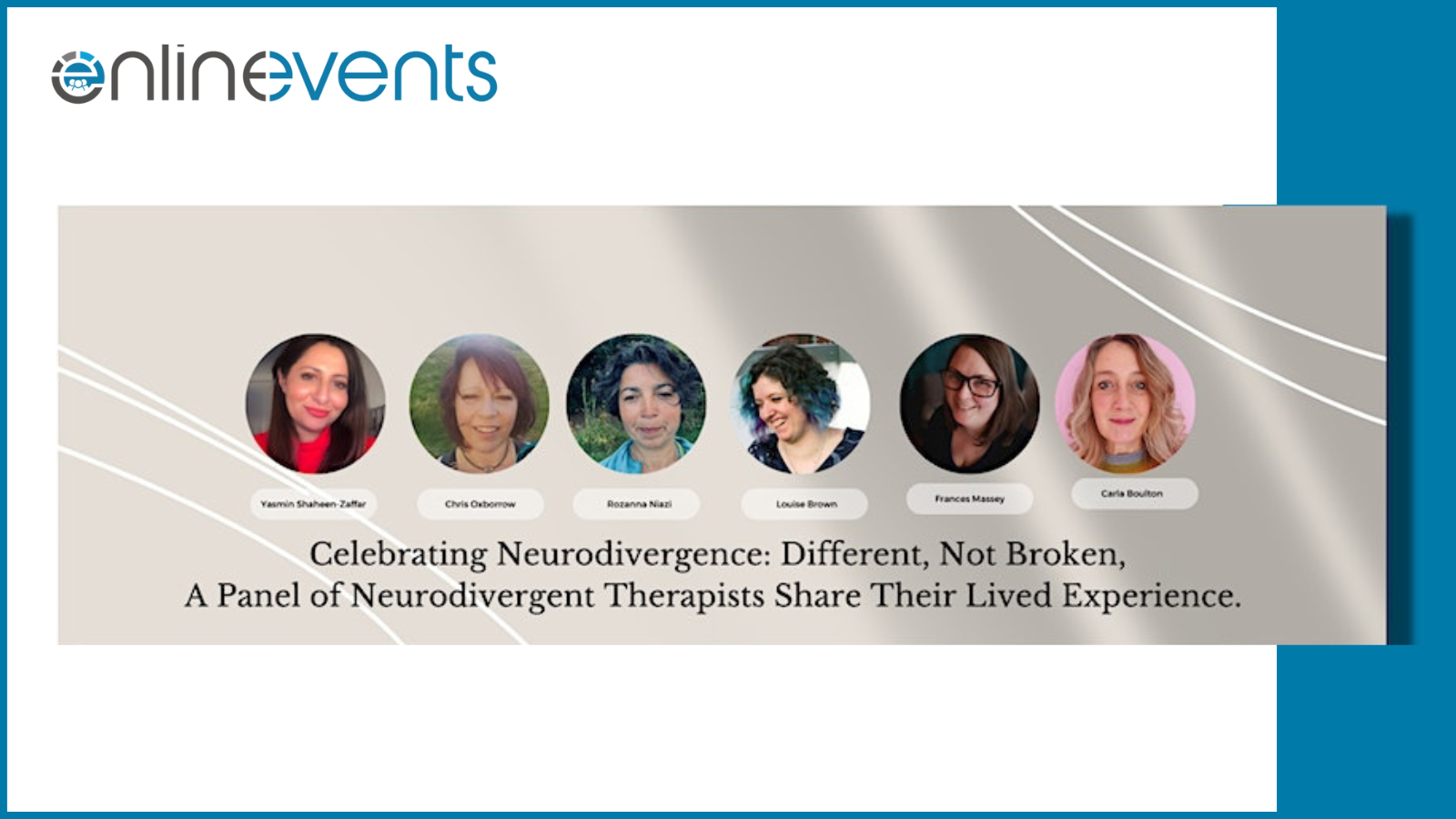Six Neurodivergent therapists discuss their unique journeys and insights on embracing their differences as a positive aspect of their lives.
Course Content
Presenter
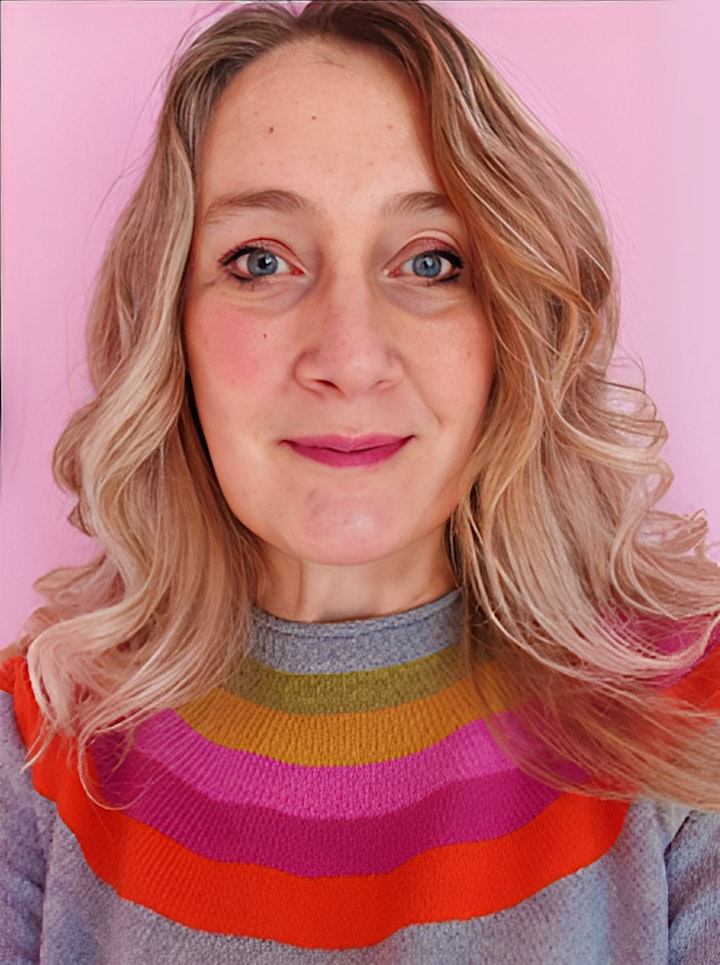
Hi, I’m Carla Boulton, a Counsellor and Coach. I love working with people of all ages and hearing their life-stories, helping them feel more comfortable with their lives.
For almost 30-years, I worked as a designer and artist – my happiest moments were when I collaborated with clients who were struggling to get a project off the ground. I saw I could guide and support them, which led me to begin coaching and counselling training in 2012.
During my training, I realised that my processes and ways of working were different from my classmates. I felt disorganised and overwhelmed by the environment. In my final year, I had amazing support from a tutor who helped me understand my neurodiversity. This led to a lot of exploration, an assessment and understanding that many blocks in my life were due to AD(D). I believe I’m different, not disordered, and have evolved systems that allow me to accept myself, work, and be in society.
I often work with neurodivergent people and offer a safe space to explore without needing to justify themselves. I will discuss how acceptance of ourselves and our systems is crucial and how painful it is to have others’ systems imposed on us, causing frustration, shame, and hurt. We are different, not broken, and our way is not wrong, but rather, it suits us and allows us to accept ourselves and be part of society.
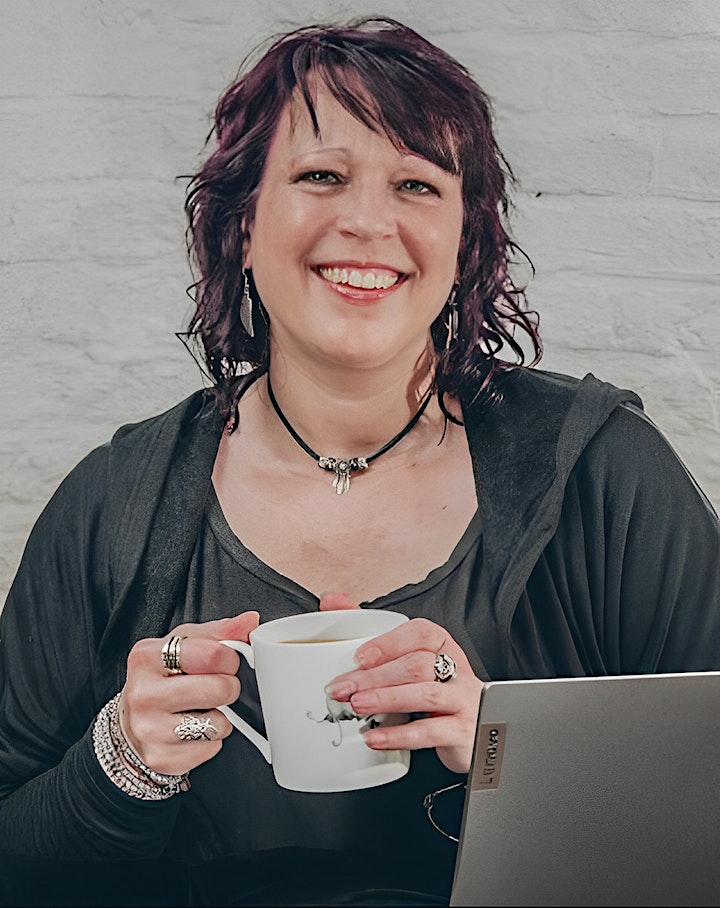
I have lived all my life assuming I was a ‘broken neurotypical’, only to discover I was just mostly disabled by a world not set up for me and expectations not suited to my strengths. My work as a neurodivergent therapist is now evolving but currently my focus is on helping high-achieving individuals to discover their true selves, meet their needs more compassionately, and move towards deeper self-acceptance. My clients come to me with issues such as work-life balance, high expectations, and burnout. We explore topics like identity, life management, and work and family demands, all with a focus on well-being, self-knowing, and moving towards an authentic future.
It was after my daughter was diagnosed as ND that I realised I was too. At 50 years old, I began the journey of coming home to myself. I firmly believe in the validity of self-realisation and reject the idea that neurodivergent individuals are “disordered.”
My interest lies in late identification and the journey of unmasking and ND affirmation. This recognition of my own neurodivergence has led to an increase in neurodivergent clients seeking my services, and I am passionate about advocating for our community within a society that does not always cater to our needs. I have recently presented on neurodivergence in medicine and started running support groups for individuals who want to identify more authentically and affirmingly with their neurodivergence.
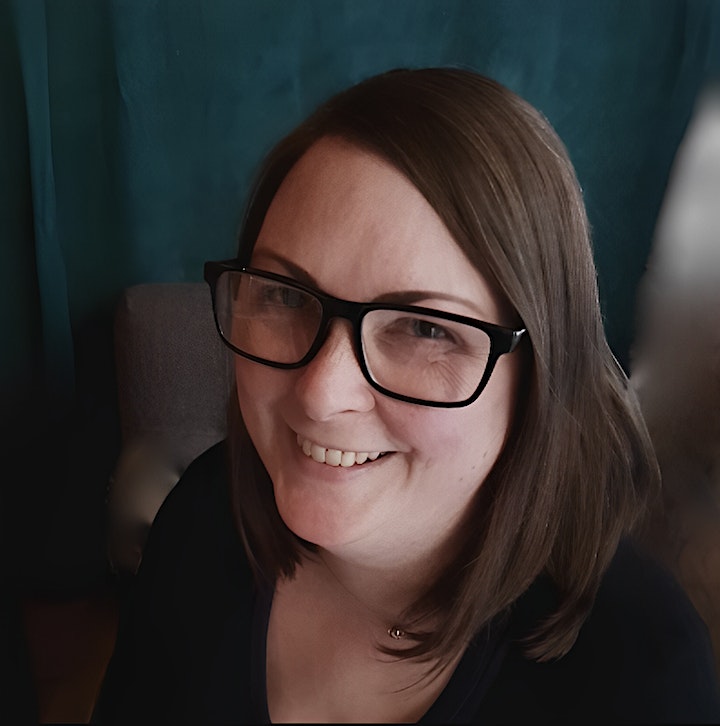
I’m Fran, a counsellor, psychotherapist, and trainee ADHD coach, and I’m proudly neurodivergent. I was diagnosed with dyslexia in my early 30s, and later on with dyspraxia and ADHD. I also self-identified as autistic. Unfortunately, the lack of support and understanding surrounding my differences had a big impact on my education and self-confidence.
Because of my personal experiences, I became passionate about the intersection of neurodivergence and education. I explored this topic for my MSc research dissertation, delving into my own educational history and learning a lot in the process.
I followed a heuristic methodology, which I feel naturally mirrors the neurodivergent learning process. It’s similar to the approach that unschoolers or self-directed learners take, where they have the freedom to deep dive into their areas of interest in ways that are aligned with their individual needs. I believe that there’s much we can learn from these alternative pedagogies, and I hope to share this with a wider audience.
I received vital support from my study skills tutor and mentor, via the Disabled Student Allowance in the final year of my MSc. It had an overwhelmingly positive impact on my capacity to succeed. However, the process of accessing this vital support itself is woefully misaligned for the needs of the ND community.
Now, I’m passionate about helping neurodivergent people discover their strengths, feel empowered to advocate for their unique needs, and lessen the impact of a world not designed for us.

As a queer and autistic therapist and supervisor in private practice, I have always been fascinated by themes of creativity, identity, and otherness, and how we find our place in the world. I specialise in working with neurodivergent and/or LGBTQIA+ clients who are exploring similar issues, and I also supervise a range of professionals.
My interest in neurodiversity developed during my ten years working in a university disability support service. Despite coming from a multiple neurodivergent family and suspecting dyslexia and dyspraxia were part of my profile, my autistic identity remained unknown to me until 2019. I was experiencing autistic burnout at the time, and my therapist asked if I had ever considered being autistic.
Since then, I have gone through a process of grief, unlearning, compassion, understanding, reconnection, and acceptance, which has allowed me to rebuild a life that is tailored to meet my needs and support all aspects of my identity. This process has been tough and continues to be ongoing, but it has been the single most healing thing I have done for myself. Knowing my queer, autistic self has opened new spaces and possibilities. I am passionate about the importance of making space for our intersectional identities and the context in which we exist with them, both for ourselves and our clients.
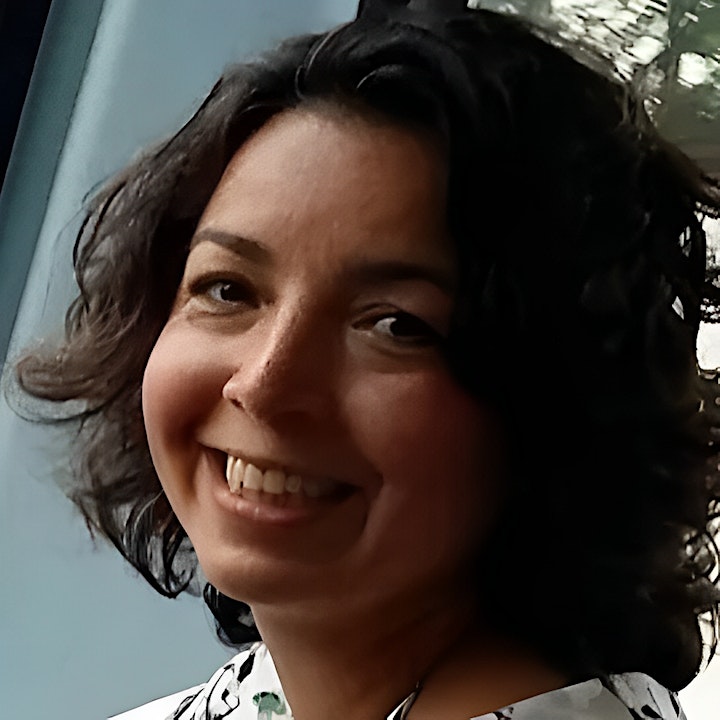
Hi, I’m Rozanna Niazi. As a teenager, I first began to consider whether I might be autistic. Back in the 1980s, this was an unconventional idea, and the term ‘Asperger’s’ had only recently been coined. At the time, I exhibited symptoms such as a fascination with breeds of cats and dogs, a photographic memory, and a strong sense of justice. Being an academic only-child with a controlling Muslim father, it was easy for me to lead an isolated and bookish life.
After completing my studies in law and specialising in mental health, advocacy, and child protection, I founded my own legal practice. Though it proved to be both satisfying and commercially successful, I soon realised that the work was all-consuming and that I was at risk of burning out. To prevent this, I sold the practice and moved to Australia to enter personal therapy and reconsider my life choices.
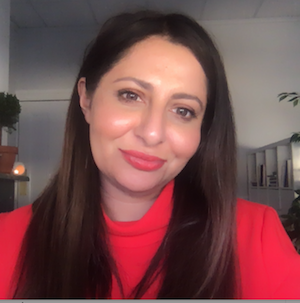
A creative counsellor with a late diagnosis of Dyslexia, ADHD, and Dyspraxia, I assist individuals, families and teens with ADHD in developing self-advocacy and emotional regulation skills using my Polyvagal Teen® resources and programs.
With the exponential increase in ADHD diagnosis I often ponder, – is society’s neoliberalism capitalistic expectations a contributor to this “disorder”? I dont have the answers but through these conversations I have created space for discussions. My diagnosis has given me the confidence to speak out against societal norms that do not cater to my brain’s functionality and embrace my creativity.
Through my lived experience, especially with education and research on trauma’s impact on gene expression and epigenetics, I will share with you why I believe my childhood and intergenerational trauma has contributed to my differences, and how my labels validate my experience.

